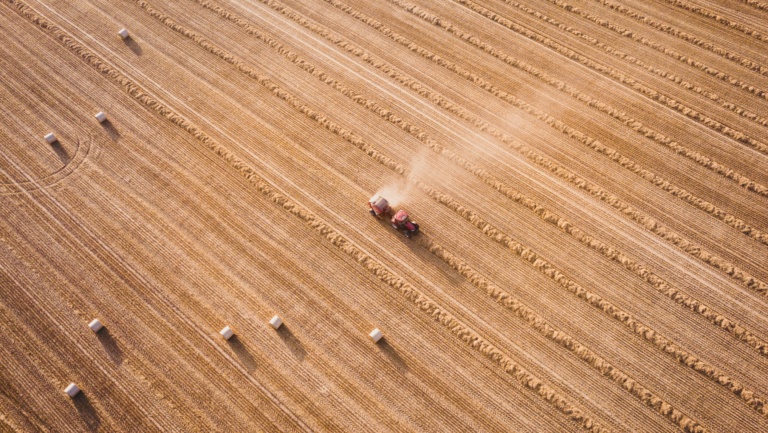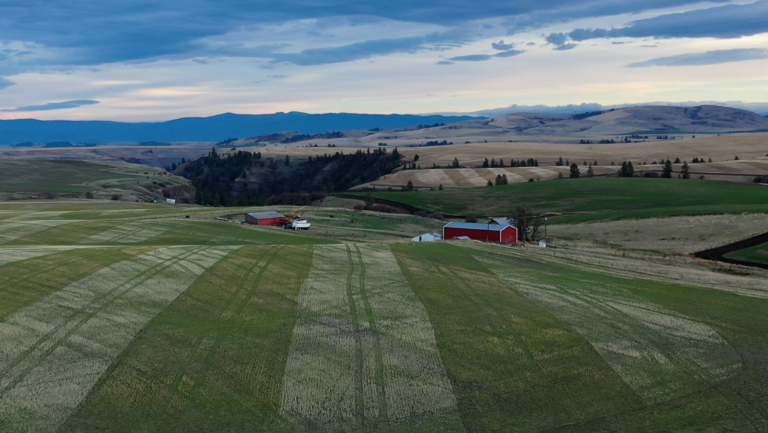Four Tips for a Beginning Farmer
As rural land ownership has sparked a renewed interest in agriculture, new farmers are writing the next chapter of American agriculture’s legacy.
There are many farmers getting into the industry for the first time. In 2017, beginning farmers made up 27 percent of total U.S. producers.
It’s never too late to begin building your legacy—and starting your first farm could be the next chapter in your journey. Whether you’re interested in the value of farmland, caring for animals, or adopting a farming or ranching lifestyle, beginning a farm is an exciting challenge.
Agriculture is a highly specialized and complex industry with many moving parts. This makes building relationships with other farmers a crucial component in one’s farming journey. Having a strong support network reminds farmers that they are part of a larger community working towards common goals.
Follow along for four tips for a beginning farmer—and get started on your own farming journey.
“We didn’t want our farm to transition in crisis. And we didn’t want our farm to transition out of necessity, we wanted it to transition because it was planned, because it was best for the business, because it was best for the family and all of our team members. So we put a lot of thought into it, and my final sticking point was that I really wanted to hire a consultant to help us. I didn’t think we could do it on our own.”
Michelle Sirles, Illinois farmer
How to Start Farming in Four Simple Steps
1. Connect with local farmers.
Farming is a relationship-centered industry. While research is important, speaking with real farmers with firsthand insight on farming in your specific area is one of the most effective ways to learn what farming is really like—and how to be successful.
Many farmers are passionate about continuing the rich legacy of American agriculture and helping others get started. Listening to their stories of challenges, triumphs, and lessons learned can help you on your own farm journey.
“There is no better time to start living your dream! There will never be that right moment. Just start now.”
When starting a farm, it’s important to be prepared but also realize that you will learn as you go. Making mistakes is a natural part of the learning process.
“Work hard, be honest, cultivate relationships, and be a good listener.”
By cultivating relationships from the beginning, you will form lasting connections that will stick with you for many years. In the future, you will be able to return the favor and help the next generation of farmers learn how to start farming.
"If you're a young farmer trying to get started in ag, networking and connections count.”
2. Share your story in the community.
As agricultural awareness increases, getting involved in the community and sharing the story of your operation while listening to others is an effective way to cultivate both business and personal relationships. The COVID-19 pandemic accelerated consumers’ desire to know where their food comes from and listen to the stories of producers. As a result, sharing your story on social media and participating in farmers markets are great ways to form connections with community members.
In particular, social media is a strong platform for cost-effective marketing and building relationships with other producers that can serve to mentor you along the way. In the age of direct-to-consumer selling, farmers markets allow producers to share locally grown fresh produce with their community. We recommend looking through the USDA Farmers Market Directory to find your nearest market.
3. Seek advice from experts.
When it comes to developing a strong business plan for your operation, there are many experts that can help you optimize your plan for long-term success. Some of these experts include financial advisors, certified public accountants (CPAs), local agronomists, and agricultural lenders. Seeking advice from experts in different areas will provide a more holistic perspective on the most effective business plan for your operation.
4. Conduct industry research.
Doing your own research to learn more about what to expect when starting your own farm is key. Some important components of farming to consider include:
- Financial management;
- Crop cultivation;
- Animal and/or land stewardship;
- Equipment repairs;
- Data management; and
- Marketing.
Fortunately, there are extensive resources available to learn how to start farming. Doing research before purchasing land and starting an operation is essential when creating a strategic business plan that sets you up for long-term success. It’s also important to remember that every operation is unique, so adapting advice to your circumstances and type of operation is critical.
“Ag is for everyone, no matter your color, age, or gender.”
Creating a Thriving Future for American Agriculture
The future of agriculture depends on farmers of all different backgrounds. Through their strides in sustainability and community engagement, these ambitious individuals are carrying on the legacy and tradition of their predecessors while bringing new ideas to the table.
As a champion for the future of American agriculture, AgAmerica supports beginning farmers with financial counsel, educational resources, and adaptable financing when the time is right.
Sign up for AgAmerica’s newsletter to have the latest agricultural news delivered straight to your inbox and explore more free resources for beginning farmers by visiting AgAmerica’s farm publication library.






